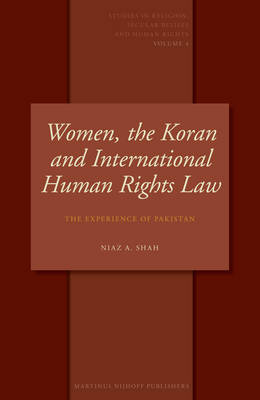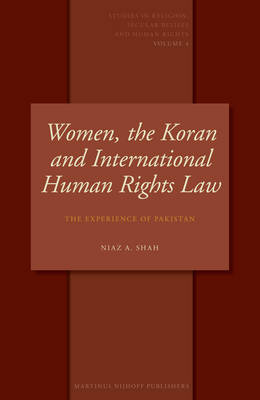
- Afhalen na 1 uur in een winkel met voorraad
- Gratis thuislevering in België vanaf € 30
- Ruim aanbod met 7 miljoen producten
- Afhalen na 1 uur in een winkel met voorraad
- Gratis thuislevering in België vanaf € 30
- Ruim aanbod met 7 miljoen producten
Zoeken
€ 256,45
+ 512 punten
Omschrijving
Religion plays a pivotal role in the way women are treated around the world, socially and legally. This book discusses three Islamic human rights approaches: secular, non-compatible, reconciliatory (compatible), and proposes a contextual interpretive approach. It is argued that the current gender discriminatory statutory Islamic laws in Islamic jurisdictions, based on the decontextualised interpretation of the Koran, can be reformed through Ijtihad: independent individual reasoning. It is claimed that the original intention of the Koran was to protect the rights of women and raise their status in society, not to relegate them to subordination. This Koranic intention and spirit may be recaptured through the proposed contextual interpretation which in fact means using an Islamic (or insider) strategy to achieve gender equality in Muslim states and greater compatibility with international human rights law. It discusses the negative impact of the so-called statutory Islamic laws of Pakistan on the enjoyment of women's human rights and robustly challenges their Koranic foundation. While supporting the international human rights regime, this book highlights the challenges to its universality: feminism and cultural relativism. To achieve universal application, genuine voices from different cultures and groups must be accommodated. It is argued that the women's human rights regime does not cover all issues of concern to women and has a weak implementation mechanism. The book argues for effective implementation procedures to turn women's human rights into reality.
Specificaties
Betrokkenen
- Auteur(s):
- Uitgeverij:
Inhoud
- Aantal bladzijden:
- 262
- Taal:
- Engels
- Reeks:
- Reeksnummer:
- nr. 4
Eigenschappen
- Productcode (EAN):
- 9789004152373
- Verschijningsdatum:
- 12/09/2006
- Uitvoering:
- Hardcover
- Formaat:
- Genaaid
- Afmetingen:
- 165 mm x 244 mm
- Gewicht:
- 612 g

Alleen bij Standaard Boekhandel
+ 512 punten op je klantenkaart van Standaard Boekhandel
Beoordelingen
We publiceren alleen reviews die voldoen aan de voorwaarden voor reviews. Bekijk onze voorwaarden voor reviews.








